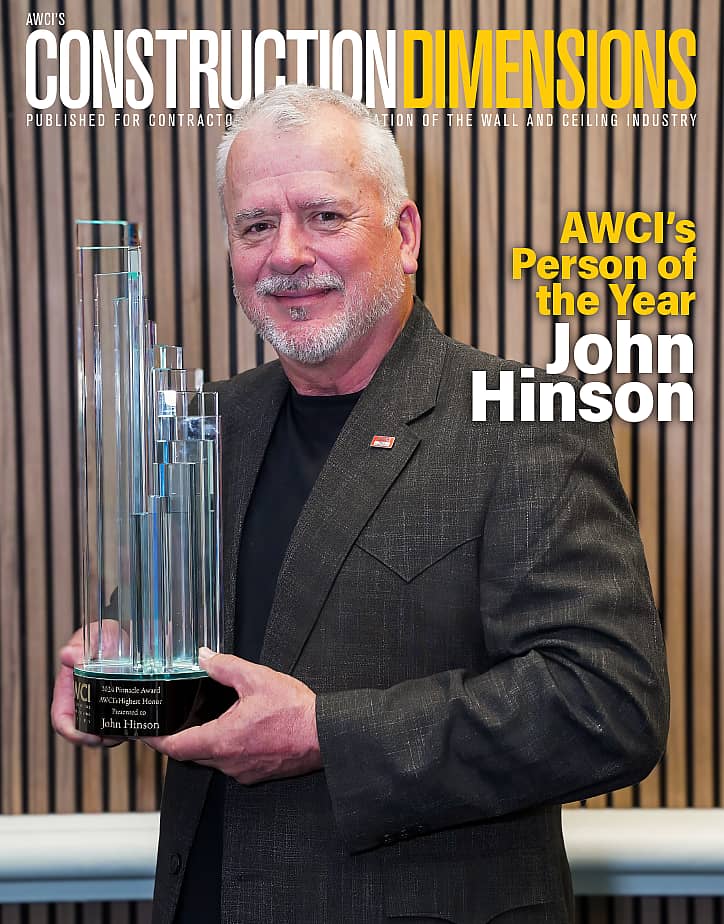Want to bolster your leadership skills? Sure, you say, but how without burning out?
“Becoming more efficient and working harder is sometimes a complete waste of time,” says Sanjay Khosla, senior fellow and adjunct professor of marketing at the Kellogg School of Management at Northwestern University in a recent Kellogg Insight article. “All you’re trying to do is become better on the same treadmill, often mindlessly responding to emails and completing tasks.”
Here’s what Khosla says you can do.
Know Yourself
Audit your strengths and development needs, says Khosla. Figure out what you enjoy doing. Then, match the feedback you get from others with your own self-analysis.
Say you’d like to become a manager. You’re a carpenter right now, and you see becoming a foreperson as the next step, and then superintendent. Your colleagues say you’re a strong candidate for a leadership role, but they want you to be perceived as more than a craftsperson. So, they suggest you volunteer for a company strategic planning team and work at acquiring more business understanding.
Your audit may also show you’re spread too thin at work and at home. Is work making it hard to spend time with your family? Can you break out of some tasks? You’ll need to free up time in your schedule to grow as a leader.
Do an Energy Audit
Activities consume energy, so figure out where you spend your time—and where you can buy yourself time. Khosla calls this analysis an “energy audit.”
Many leaders do too much. They attend too many meetings. They get mired in detail and add to their to-do lists.
“Look at your calendar over the last six months and divide how you spent your time into a few themes,” Khosla says. “Then ask yourself: ‘From this list of themes, what is working for me, and what is not? What are the things that really get me excited and engaged?’”
Pick Five Focus Areas
Create a list of five specific areas of focus. And first, make something non-work-related your priority, since that’s important for a healthy work-life balance. Some love to run and want an early morning jog before heading to work. Others want to drop off and pick up their children from school each day. Whatever it is, make it your top focus area.
After creating your list, delegate what’s not on it. Sure, you may want to retain control of many items and feel uncomfortable letting them go. But remember, delegating adds cushion to your work week, helps you to be less reactive in trying situations and buys you time to work on new skills.
Create a Circle of Influence
Your circle of influence should include colleagues and managers both inside and outside the company. They help you take advantage of leadership-development opportunities. They can help you “position yourself for projects that may have seemed inaccessible before,” Khosla says.
If you’re a field superintendent and your goal is to be an executive leader, you might garner some experience working in sales. Turn to a senior sales leader. Ask if you can work on some sales team projects. Learn about sales by doing it. By having a circle of influence, you’ll gain “a deeper appreciation of the levers of business,” Khosla says.
Be a Big Picture Thinker
This fifth step involves being a good editor: Review how you present yourself and your views in meetings. Don’t waste time sharing information that others could review in advance, and don’t get stuck in technical details. Learn to focus on the big picture.
“There is no point murdering the audience with mindless PowerPoints,” Khosla says. “Look at it from the audience’s point of view, and ask, ‘What would inspire and excite them?’”
Implementing these five steps will help you advance in your career without wasting your time and energy. You will help your company to succeed, and you will grow as a leader.
Mark L. Johnson writes for the walls and ceilings industry. He can be reached via linkedin.com/in/markjohnsoncommunications.



